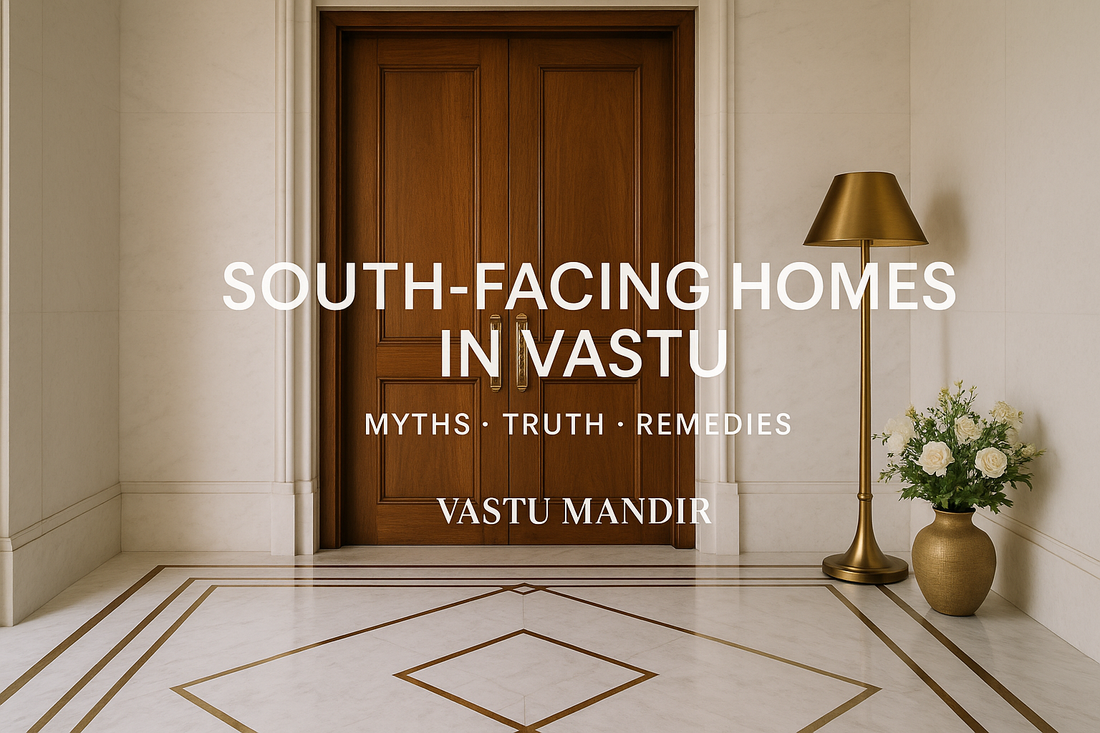
South-Facing Homes in Vastu: Myths, Truth & Practical Remedies
Vastu MandirShare
The Myth Around South-Facing Homes
Ask around and you’ll hear: “Never buy a south-facing home.”
This belief has lingered for generations. But in truth, Vastu never calls any direction “bad.”
South-facing homes gained this reputation because of:
-
Improper door placements in older houses.
-
Lack of natural light in south-entry homes.
-
Cultural preference for east and north-facing directions.
But in modern design, with balanced layouts, south-facing homes can be equally auspicious.
What South-Facing Homes Represent
In Vastu, the south direction is governed by Yama, the deity of discipline and order. Rather than fear, this represents:
-
Strength and grounding when treated well.
-
Discipline and balance in family life.
-
Maturity and stability for long-term living.
It is not about misfortune — it’s about respecting placement.
Common Issues in South-Facing Homes
-
Dim light: South entrances often block early daylight.
-
Heat: Afternoon sun can make spaces warmer.
-
Anxiety: Cultural stigma often makes residents feel uneasy.
Remedies for South-Facing Homes
Practical, simple remedies ensure harmony without reconstruction.
-
Main Door Correction
-
Place a brass or copper strip across the threshold.
-
Add auspicious symbols like Swastik, Om, or Trishul on the door.
-
Keep the nameplate clean and well-lit.
-
Lighting Balance
-
Use bright, neutral-white light (5500–6000K) to remove dimness.
-
Add soft warm lamps in the evenings for balance.
-
Energy Anchors
-
Place pyramids or brass tortoise near the entrance.
-
Add a brass diya at the south wall to ground the energy.
-
Colors & Décor
-
Keep the entrance painted in light tones (off-white, cream).
-
Avoid dark heavy shades on the south wall.
Living in a South-Facing Home
When balanced well, south-facing homes feel:
-
Stable: Strong grounding energy.
-
Secure: Ideal for families planning long-term.
-
Balanced: Especially supportive for people in structured professions.







